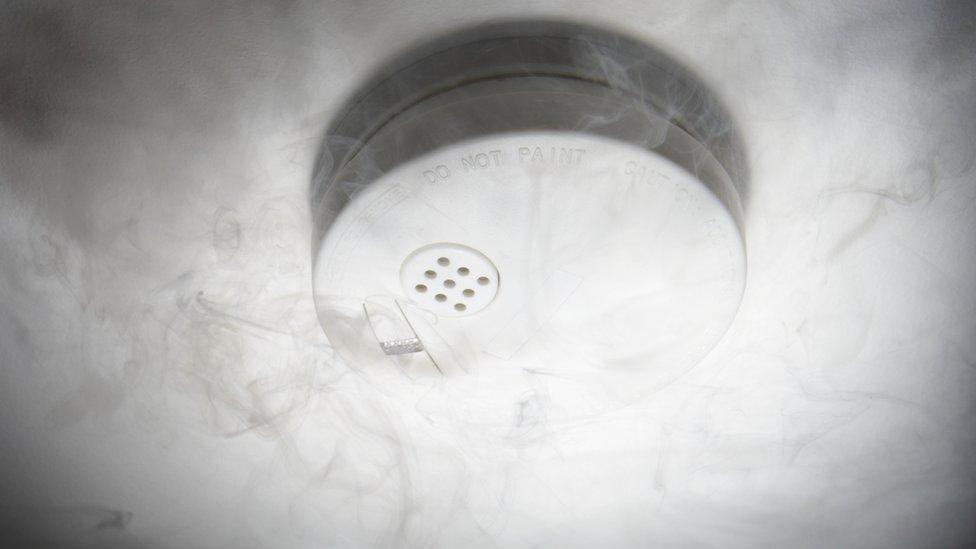Scotland's new smoke alarms law comes into force
- Published
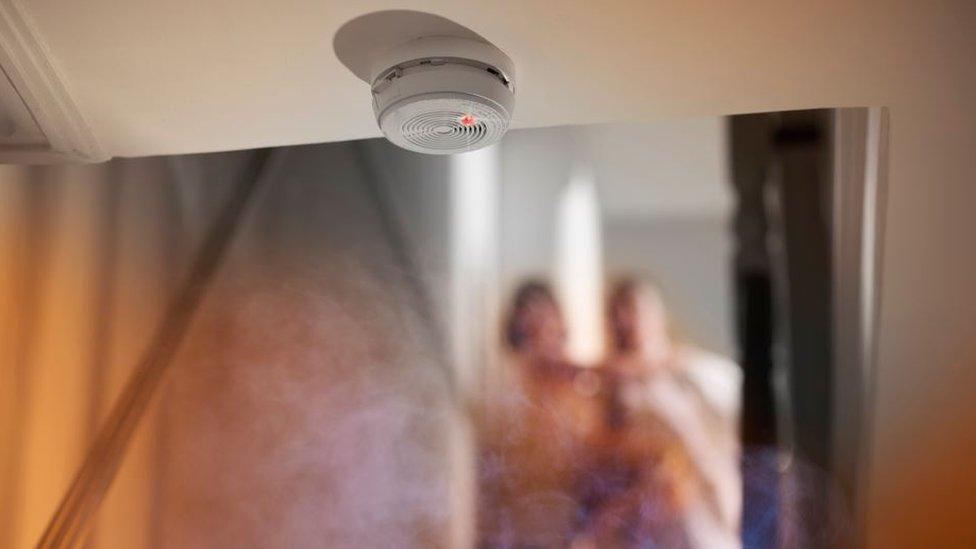
A new law requiring every home in Scotland to have interlinked smoke alarms has come into force.
The Scottish government has said people will not be penalised if they need more time to install the alarms.
But opposition parties had called for the scheme to be delayed and said the new legislation had not been properly publicised.
Scottish ministers have rejected the calls and given more money to help vulnerable people install the alarms.
Scotland is the first UK nation to legally require every home to have interlinked smoke alarms.
The legislation was introduced in 2019 following the Grenfell disaster but was delayed until 2022 due to the coronavirus pandemic.
Concerns have been raised about the availability of interlinked alarms and the number of households still to undertake the work.
New build and privately-rented homes have been required to have interlinked smoke alarms for more than a decade.
The new rules will apply to owner-occupied homes and those in the social rented sector, placing a legal duty on councils to monitor how many homes are compliant.

Analysis by Connor Gillies, BBC Scotland consumer affairs correspondent
At the heart of this change is a push to improve fire safety in our homes. More than 40 people were killed in house fires in Scotland in 2020/21 and, on average, 30% of blazes started in the living room.
But many feel the implementation is confusing and costly. Some are nervous about installing the alarms themselves which has led to price gouging from firms trying to cash in.
Others question the timing given the cost of living crisis. The Scottish government estimates the average cost to install the alarms is £220. We're told those struggling will have access to financial support. However, funding is always limited and not everyone will benefit.
There are also questions about enforcement of this policy. There will be no penalties (for now) for people who chose not to install them. It will not be a criminal offence. When will that change? Will we see a day where people will be fined? These are unanswered questions.
Sources within the home insurance industry suggest people will not face immediate changes to policies. New customers or those renewing are being encouraged to read the small print.
Although the official legislation kicks in today, it feels like we're in a holding pattern.

The government has said the interlinked alarms would "significantly reduce the risk of injury or death" by giving residents more time to escape a fire.
Lorraine Gillies, of the Scottish Community Safety Network, said there was a "sound premise" behind the legislation but she believed there was not enough public awareness about the new rules.
She told BBC Radio's Good Morning Scotland programme: "I am not convinced that everybody who needs to know about it knows about it.
"We are also concerned about the cost attached to getting these devices and fitting them and actually being able to do that around about this time period, which kind of feels to me to be a bit of a push."

What are the requirements of the new legislation?
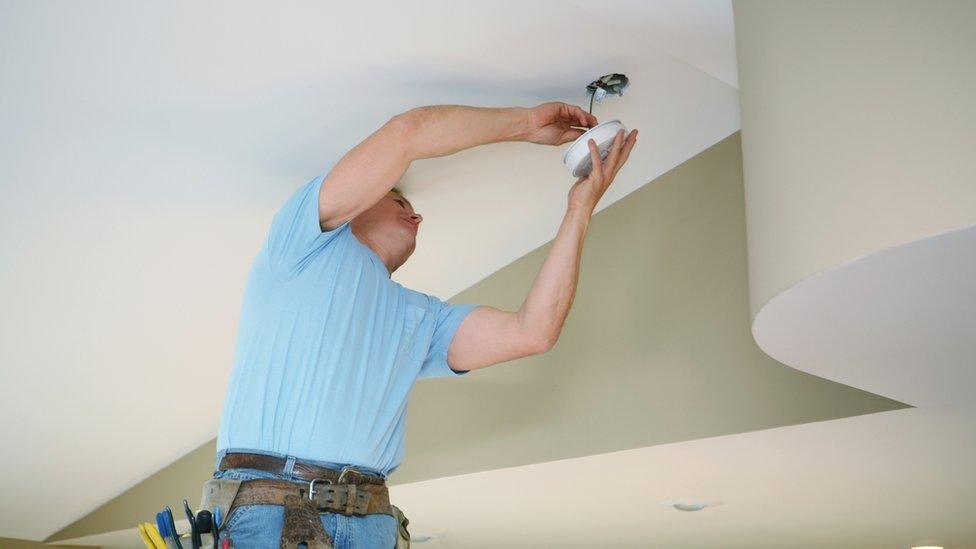
Scotland is the first UK nation to legally require every home to have interlinked smoke alarms
Every home must have the following:
one smoke alarm installed in the room most frequently used for general daytime living purposes
one smoke alarm in every circulation space on each storey, such as hallways and landings
one heat alarm installed in every kitchen
All alarms should be ceiling mounted and interlinked. Where there is a carbon-fuelled appliance (such as boilers, fires - including open fires - and heaters) or a flue, a carbon monoxide detector is also required - this does not need to be linked to the fire alarms.

Scottish Conservative housing spokesman, Miles Briggs MSP, has called for a delay to the new rules.
Housing Secretary Shona Robison, however, said councils would take a "light touch" to enforcement and insisted the government would not "criminalise" people for failing to comply.
Ms Robison told BBC Scotland she "absolutely recognised the cost of living pressures" facing families but insisted the new alarms were a "good investment" for the safety of properties.
The organisation representing home insurers in the UK said policyholders should not face their coverage being invalidated if they fail to meet the new regulations.
The Association of British Insurers, however, urged people to check the small print of their policies.
Related topics
- Published1 February 2022
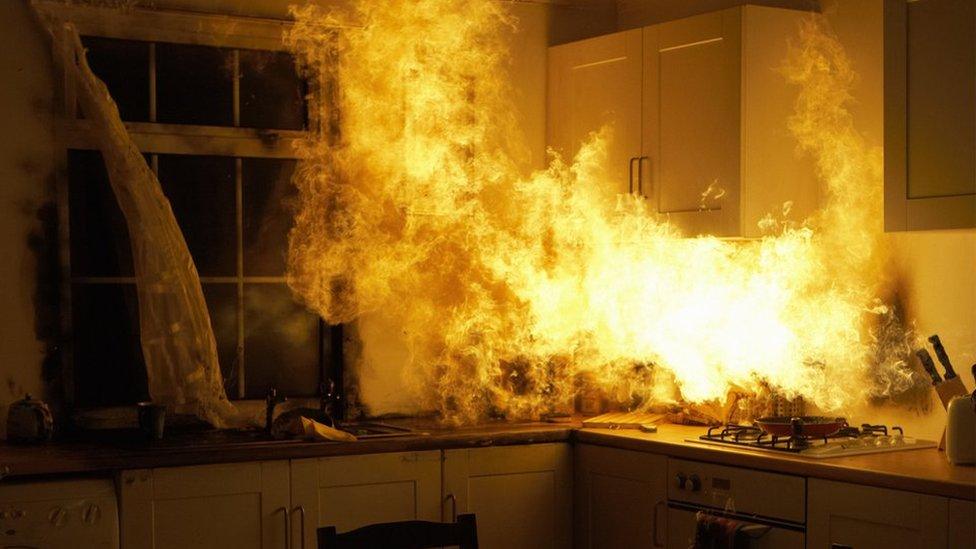
- Published30 January 2022
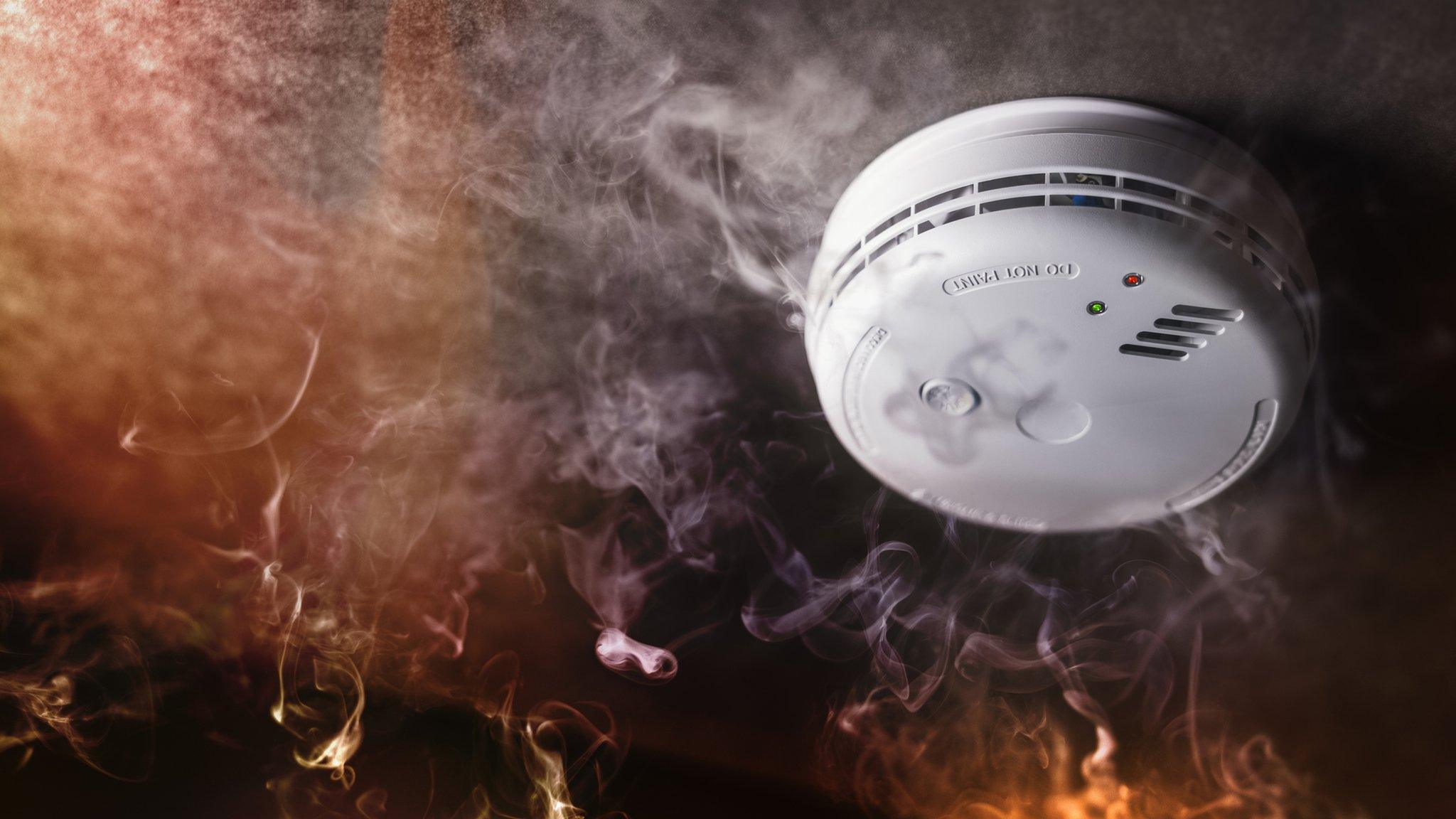
- Published20 October 2020
